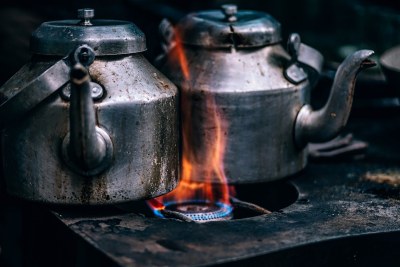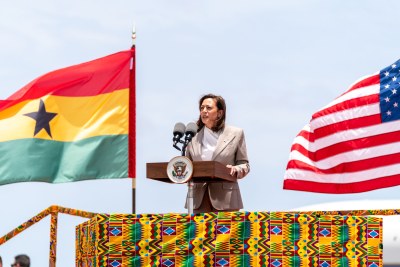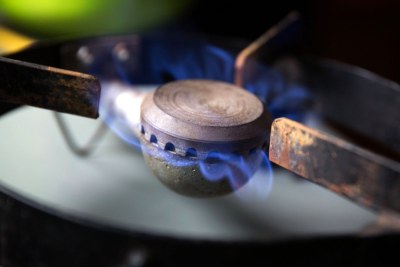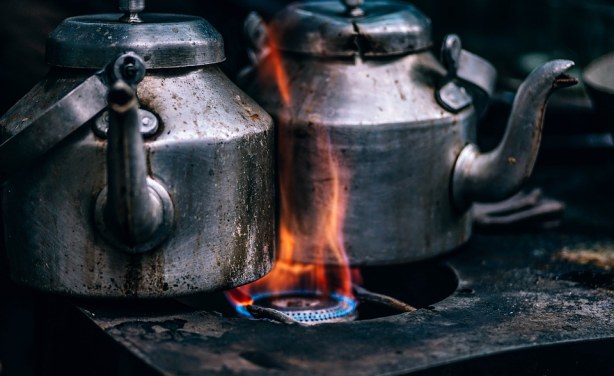-
Africa: Experts Explain Why It's Still Africa's Best Option for Cleaner, Greener Cooking (For Now)
The Conversation Africa, 13 June 2023
Africa's growing population desperately needs clean, modern energy in the home. Currently, more than 900 million people, 85% of the region's population, still rely on solid biomass… Read more »
-
Nigeria: It's Unreasonable to Jettison Nigeria's Fossil Fuels Now - Vice President Osinbajo
This Day, 30 April 2023
Vice President Yemi Osinbajo yesterday insisted that while the global call for a transition to cleaner fuels may be valid, it would be unreasonable for Nigeria to abandon her… Read more »
-
Tanzania: Isles Promotes Alternative Energy for Cooking
Daily News, 10 January 2023
THE Mayor of Urban Town Council in Zanzibar City, Mr Ali Haji Ali, has urged people including those living in military barracks and Housing, boarding schools and hostels to stop… Read more »
-
Africa: Cooking With 'Dirty' Fuels Affects Women's Mental Health #AfricaClimateCrisis
The Conversation Africa, 28 June 2022
About 2.6 billion people - nearly half of the global population, most of them in Africa, Asia and central and south America - rely on biomass fuels, like wood and charcoal, or… Read more »
-
Nigeria: World Environment Day - Gas, Cleaner Fossil Fuel, Can Power Nigeria's Economy
This Day, 7 June 2022
World Environment Day is marked all over the world for more than a day. Actually, events are lined up weeklong, and this week, events to celebrate the environment in the 2022 WED… Read more »
-
Africa: Clean Cooking - Lifting the Lid on Dirty Cooking Fuels
allAfrica, 1 July 2021
When world leaders gather at summits to discuss global issues, do they ever stop to ask how the food was prepared or by whom? We eat every day, yet how food is cooked and the… Read more »
Africa's Top Choice for Cleaner Cooking, Experts Say
Africa's growing population desperately needs clean, modern energy in the home. Currently, more than 900 million people, 85% of the region's population, still rely on solid biomass fuel (like wood and charcoal) and kerosene for cooking. These energy sources are highly polluting, inefficient and unsafe, writes Nigel Bruce and Dan Pope for The Conversation.
To address this issue, many African countries are working on developing scalable renewable energy resources such as solar PV, wind, hydro, geothermal, ethanol, and biogas. The International Energy Agency has identified liquefied petroleum gas (LPG) as the most important interim clean cooking fuel during this transition. LPG is a byproduct of oil and gas production and refining. Although it's a fossil fuel, it's one of the least damaging to the climate.
Clean cooking access in sub-Saharan Africa needs to improve around 15 times faster over the 2022-2030 period than it has before. As experts on the impact of air pollution on public health, argue that realistically, for the next 10-20 years, LPG is the only cleaner fuel that ticks all the boxes. It is popular, meets household needs, is easy to store and transport, and - crucially - is available now in the quantities needed.
However, barriers to adoption include affordability, reliability, and safety concerns. Donors are hesitant to invest in LPG due to it being a fossil fuel. The international community should support African governments in promoting LPG alongside renewables for universal clean energy access by 2030.
InFocus
-
About 2.6 billion people - nearly half of the global population, most of them in Africa, Asia and central and south America - rely on biomass fuels, like wood and charcoal, or ke Read more »
-
United States Vice President Kamala Harris' trip to Tanzania was a landmark development for the country, the East African Community of which, it is a key member and the rapidly ... Read more »
-
Uganda is working to enhance women's access to clean energy. At a virtual workshop on February 23, 2020, Uganda's Minister of State for Energy and Mineral Development Simon ... Read more »






